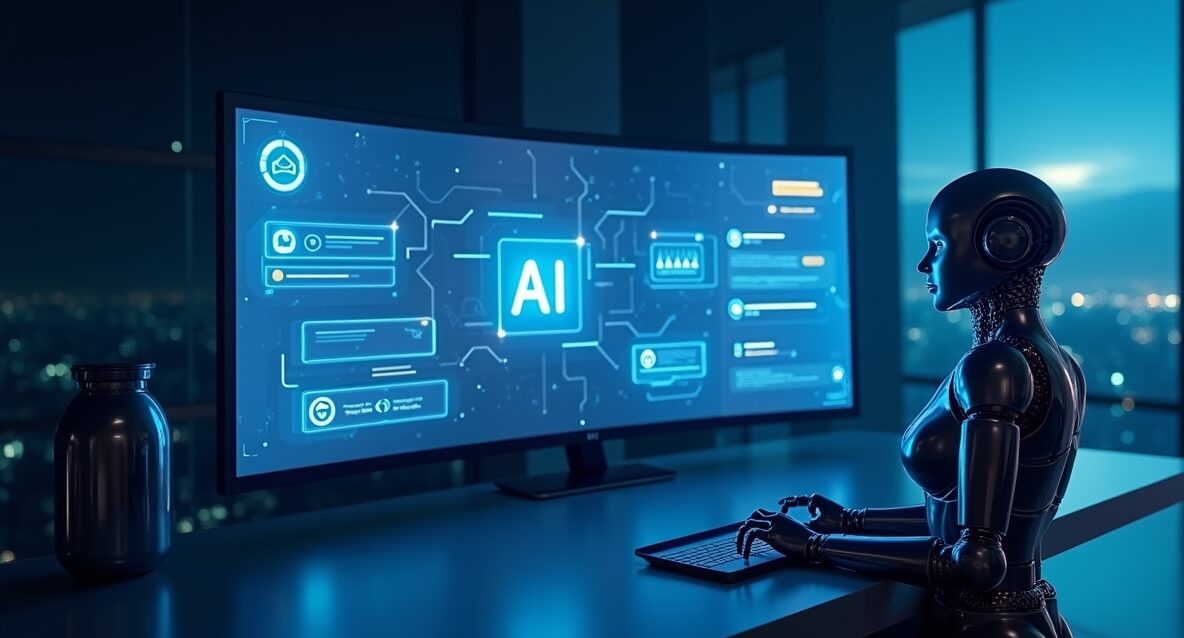Artificial intelligence (AI) has transformed how businesses operate, particularly in customer service and automation. Among the most impactful tools are AI chatbots and AI agents. Although these terms are often used interchangeably, they represent distinct technologies with unique capabilities. Understanding the difference between the two can help you select the right solution for your needs.
What Are AI Chatbots?
AI chatbots are automated programs designed to simulate simple conversations with users. Typically, they are rule-based and operate within predefined parameters. According to Gartner, “Chatbots can handle 80% of standard queries without human intervention,” making them ideal for addressing common issues efficiently.
Advantages of AI Chatbots:
- Quick Implementation: Chatbots can be deployed rapidly, especially for straightforward use cases.
- Cost-Effectiveness: They offer a low-cost solution for managing high volumes of repetitive queries.
- Ease of Use: Chatbots work seamlessly on platforms like websites and social media.
However, chatbots have limitations. They struggle with understanding context or managing complex queries, often requiring human escalation when issues go beyond their programmed capabilities.
What Are AI Agents?
In contrast, AI agents are more sophisticated systems capable of learning and decision-making. Powered by machine learning and advanced natural language processing, they go beyond scripted interactions to provide meaningful, context-aware responses. A report by McKinsey highlights that “AI agents can improve customer satisfaction by up to 20%,” thanks to their ability to personalise interactions.
Key Features of AI Agents:
- Context Awareness: They can understand intent and respond appropriately, even in complex situations.
- Learning Capabilities: AI agents adapt over time, improving their performance with every interaction.
- Task Automation: Beyond conversations, they can automate workflows, manage schedules, and integrate with other systems.
AI agents are ideal for industries requiring in-depth support, such as healthcare, finance, and e-commerce. Their ability to handle complex workflows and provide actionable insights makes them invaluable for businesses aiming to enhance efficiency.
Key Differences Between AI Chatbots and Agents
The primary distinction lies in their capabilities. Chatbots operate within a fixed framework, while agents are dynamic and adaptable. For instance, chatbots can answer, “What are your business hours?” but agents can manage, “Can you help me reschedule my appointment?” and adjust workflows accordingly.
Choosing the Right Solution
When deciding, consider your organisation’s needs. If your primary goal is to address basic queries cost-effectively, chatbots are the way to go. On the other hand, if you require sophisticated support with advanced functionalities, investing in AI agents is a smarter choice. Keep in mind that both options can coexist, serving distinct purposes within a unified strategy.
Conclusion
AI chatbots and AI agents each play significant roles in modern business operations. While chatbots are perfect for handling routine queries, agents excel in managing complex tasks. As AI technology evolves, the line between these tools may blur, but choosing the right solution today depends on understanding your specific requirements. As Accenture aptly states, “The right AI solution doesn’t replace humans; it amplifies their capabilities.”
By carefully assessing your needs, you can leverage the power of AI to transform customer interactions and improve operational efficiency.
Forbes
AI chatbots are projected to handle 80% of all customer interactions by 2030, significantly enhancing customer service efficiency.




